Disclosure: This article contains affiliate links. We may earn a commission from purchases at no extra cost to you, which helps our travel content.
There's a concept in Japanese called uchi-soto (内外) that distinguishes between one's inner circle and the outside world. In Vienna, this division is perfectly embodied in its dual café culture—the polished, historic establishments filled with tourists, and the intimate hideaways where Viennese locals actually spend their Sunday mornings. During my latest translation project with the Vienna State Opera, I found myself with stolen afternoons to wander beyond the well-trodden paths of Stephansplatz and Schönbrunn. Armed with recommendations from my Austrian colleagues and a translator's curiosity for authentic cultural spaces, I discovered a Vienna that exists just beyond the gaze of most visitors—a Vienna where Gemütlichkeit (that untranslatable sense of coziness and belonging) isn't manufactured for tourists but naturally cultivated among neighbors, artists, and regular Viennese folks seeking refuge from the imperial grandeur that defines their city's global image.
Café Jelinek: The Living Room of Mariahilf
Tucked away on Otto-Bauer-Gasse in the 6th district, Café Jelinek embodies what Viennese call Kaffeehaus-Verfall—the beautiful decay of a traditional coffeehouse. While tourists queue for Sacher torte at the famous cafés, locals retreat here where the velvet booths are comfortably worn and newspapers are still served on wooden holders.
On my first visit, I arrived just as morning light filtered through the tall windows, illuminating dust motes dancing above marble tabletops. The owner, Herr Weber, nodded at regulars without interrupting their reading—a quintessentially Viennese acknowledgment that personal space in public is sacred.
What distinguishes Jelinek is its topfenkolatschen (quark cheese pastry)—lighter and less sweet than those found in tourist-oriented establishments. I paired mine with an einspänner—strong black coffee topped with whipped cream served in a glass with a metal handle, traditionally designed for coachmen to drink without getting cold hands.
'The coffee here hasn't changed in forty years,' my Viennese friend Claudia told me. 'And neither has the price, almost,' she added with a wink.
I've since returned five times, each visit revealing new details: the vintage cash register that rings with mechanical precision, the regulars who have occupied the same seats for decades, and the unspoken rule that one coffee purchase buys you hours of undisturbed reading or writing time.

💡 Pro Tips
- Visit between 8-10am to see the true morning ritual of Viennese locals
- Don't rush to leave after finishing your coffee—lingering is part of café culture
- Try their house-made apricot jam with a butter kaiser roll for a simple Viennese breakfast
Karmelitermarkt: The Bohemian Soul of Leopoldstadt
Cross the Donaukanal to Vienna's 2nd district and you'll find yourself in Leopoldstadt, historically the Jewish quarter and now home to the city's most vibrant multicultural scene. At its heart lies Karmelitermarkt, a market that has remained stubbornly authentic while others have gentrified beyond recognition.
Unlike the touristy Naschmarkt, Karmelitermarkt still serves primarily as a neighborhood food source. Elderly residents haggle over the price of cherries while young families fill cloth bags with seasonal produce. The market reflects Vienna's position at the crossroads of Europe—Hungarian paprika sits alongside Turkish börek and Austrian pumpkinseed oil.
On Saturday mornings, the market transforms into a bustling social hub. I found myself drawn to Kaas am Markt, a tiny cheese shop where Frau Bernhard has been selling raw-milk cheeses for over twenty years. 'Try this,' she insisted on my second visit, offering a sliver of something pungent and complex. 'From the mountains, two hours from here. No name in English.'
For the best experience, I recommend bringing a portable picnic blanket to enjoy your market finds in the adjacent Karmeliterpark. This ultra-compact blanket unfolds to provide ample space for an impromptu picnic with your market treasures.
The market's northern end has seen some upscale additions, including Zimmer37, a farm-to-table café where I spent three hours transcribing interview notes while nursing a single verlängerter (extended black coffee). Nobody rushed me—another beautiful Viennese tradition.
What makes Karmelitermarkt special is this seamless blend of old and new Vienna, where tradition and innovation coexist without the self-consciousness that plagues more touristic areas.

💡 Pro Tips
- Visit on Saturday mornings for the full market experience with additional farm stands
- Look for seasonal specialties like Marillen (apricots) in summer and Steinpilze (porcini mushrooms) in fall
- Practice basic German phrases—vendors are much more responsive when you attempt their language
Café Phil: The Bookstore-Café Hybrid of Neubau
Vienna's creative class has gravitated to the 7th district, and at its epicenter is Café Phil—a space that defies simple categorization. Part bookstore, part café, part living room for the city's designers, writers, and artists, Phil represents Vienna's contemporary cultural evolution.
Unlike the historic coffeehouses that bank on nostalgia, Phil embraces an eclectic aesthetic—mismatched vintage furniture, towering bookshelves, and an ever-changing exhibition of local art. What remains quintessentially Viennese is the unhurried atmosphere and commitment to quality.
During my third visit to Vienna, I spent a rainy afternoon translating poetry at Phil, alternating between work and eavesdropping on fascinating conversations in German, English, and occasionally French. The staff recognized me from previous visits and suggested I try their house specialty—a lavender-infused hot chocolate that somehow manages to be sophisticated rather than cloying.
'This is where ideas in Vienna are born now,' explained Martin, a theater director I met while browsing the carefully curated book selection. 'The traditional cafés preserve our past, but places like Phil are creating our future.'
What makes Phil special is that it manages to be both trendy and substantive—a difficult balance in an age of Instagram-optimized spaces. People come here to actually read the books, not just photograph them. The music (often selected from vinyl) is kept at a volume that permits conversation, and laptops are welcome but not dominant.
For travelers who work remotely, I recommend bringing a noise-canceling earbuds to maintain focus during busier periods while still absorbing the creative atmosphere that makes Phil special.

💡 Pro Tips
- Visit mid-afternoon on weekdays when the space is less crowded
- All books are for sale—including many English titles focusing on art, design, and philosophy
- Order the breakfast until 3pm—it comes with house-made bread and local organic spreads
Vollpension: Where Grandmothers Rule the Kitchen
In an era of sleek, concept-driven eateries, Vollpension offers something revolutionary: authenticity. This café employs retirement-age Viennese—mostly grandmothers—to bake cakes according to their personal family recipes. The result is a multi-generational space that feels more like a living room than a commercial establishment.
Located near Naschmarkt, Vollpension is easy to miss if you're rushing between major attractions. Its unassuming facade gives way to an interior that can only be described as gemütlich—that untranslatable German concept encompassing coziness, comfort, and belonging.
On my last visit, I arrived just as Frau Helga was pulling her signature Nusskuchen (nut cake) from the oven. 'This was my mother's recipe,' she told me in German, 'from before the war.' Each cake at Vollpension comes with a story, often handwritten on small cards next to the display case.
What makes this place special isn't just the food—though the cakes are genuinely superior to those found in more commercial establishments. It's the intergenerational exchange that happens naturally here. Young parents bring children who are doted on by the staff, solo travelers find themselves in conversations with Viennese seniors happy to share local history, and students come to study in an atmosphere that feels more nurturing than the average café.
I've found that bringing my travel journal here inspires some of my best writing. Something about the unhurried atmosphere and the sense of continuity with Vienna's past creates the perfect conditions for reflection.
'We don't just serve cake,' explains co-founder Hannah Lux, 'we serve connection across generations.' In a city sometimes criticized for being reserved or even cold to outsiders, Vollpension offers a rare glimpse into Viennese warmth and hospitality.

💡 Pro Tips
- Try to sit at the communal table for the best chance at conversation with locals
- Ask which baker made your cake—they're proud of their creations and often have stories to share
- Visit during afternoon coffee hour (3-5pm) to see the café at its most vibrant
Yppenplatz: The Multicultural Heart of Ottakring
Far from the imperial grandeur of central Vienna lies Yppenplatz, a square in the traditionally working-class 16th district that has evolved into one of the city's most vibrant cultural crossroads. Surrounding the Yppenmarkt—a small but diverse food market—are cafés and restaurants that reflect Vienna's increasingly multicultural identity.
My discovery of this area came through a chance conversation with a stagehand at the Volksoper who insisted I visit his neighborhood. 'This is the real Vienna now,' he told me, 'not what you see in the first district.'
On a sunny Saturday, I followed his advice and found myself in what felt like a different city altogether. The market itself is modest compared to Naschmarkt but offers a more authentic experience. Vendors from Turkey, Serbia, and beyond sell produce alongside Austrian farmers, creating a linguistic tapestry as colorful as their goods.
The cafés surrounding the square each have distinct personalities. An Amore is run by an Italian-Austrian couple serving the best espresso I've found in Vienna, while Café C.I. offers North African-influenced dishes that reflect the owner's Tunisian heritage.
What makes Yppenplatz special is its organic evolution—unlike areas that have been deliberately 'revitalized' for tourism, this neighborhood has transformed naturally through immigration, artistic presence, and community engagement.
On my second visit, I brought my compact camera to capture the vibrant street life. The camera's discreet size and vintage aesthetic made it perfect for documenting the area without making locals feel like subjects in a tourist's gaze.
The most magical time at Yppenplatz is early evening, when locals gather for the Austrian tradition of Feierabend—that sacred transition between work and leisure. Office workers, artists, and longtime residents share tables outside, conversing across generations and cultures in a way that feels increasingly rare in major European cities.

💡 Pro Tips
- Visit the Brunnenmarkt (which connects to Yppenplatz) on Saturday mornings for the fullest market experience
- Try Turkish breakfast at Kent Restaurant—a neighborhood institution for over 30 years
- Look for cultural events in summer when the square hosts free concerts and community gatherings
Café Korb: The Intellectual's Living Room
Just steps from the tourist thoroughfares yet worlds away in atmosphere, Café Korb represents Vienna's intellectual tradition in its most authentic form. Founded in 1904 and famously frequented by Sigmund Freud, this café maintains its connection to Vienna's academic and artistic communities without the pretension that plagues more famous establishments.
What struck me immediately about Korb was its democratic nature—unlike cafés that seem to cater exclusively to tourists or locals, Korb welcomes all with equal nonchalance. The ground floor offers traditional café service, while the basement houses Susanne Widl's legendary Art Club, where cultural events from poetry readings to avant-garde performances take place regularly.
On my first visit, I arrived with my German-language copy of Robert Musil's 'Der Mann ohne Eigenschaften' (The Man Without Qualities)—Vienna's quintessential modernist novel. The waiter nodded approvingly as he brought my melange (Viennese cappuccino) and glass of water, served as tradition dictates on a small silver tray.
'Freud sat there,' an elderly gentleman at the next table informed me in English, gesturing toward a corner. 'And Jelinek still comes sometimes.' He was referring to Elfriede Jelinek, Austria's Nobel Prize-winning author known for her incisive critiques of Austrian society.
What makes Korb special is that it honors its intellectual history without becoming a museum to itself. The furnishings are simple rather than opulent, the food honest rather than pretentious. Their apfelstrudel is served warm with a dollop of schlag (whipped cream) and tastes of cinnamon and tradition.
During my translation work on Austrian theater texts, I found Korb to be the perfect place to wrestle with difficult passages. Something about the atmosphere—perhaps the accumulated wisdom in the walls—seemed to clarify complex thoughts.

💡 Pro Tips
- Check their website for Art Club events in the basement—many are in English or bilingual
- The best seats are in the smoking section (yes, smoking is still allowed in designated areas), but be prepared for the smoke if you choose to sit there
- Their breakfast is served until 3pm and includes excellent scrambled eggs with chives
Meierei im Stadtpark: The Hidden Dairy Palace
For my final hidden gem, I'm sharing a place that straddles the line between tourist destination and local secret. Meierei im Stadtpark sits in the shadow of the famous Steirereck restaurant (one of the world's top 50), yet many visitors walk past without realizing this dairy-focused café offers an accessible taste of culinary excellence at a fraction of the price.
Set in Vienna's lovely Stadtpark, the Meierei (dairy) occupies a renovated milk pavilion from the imperial era. While its connection to the two-Michelin-starred Steirereck might suggest pretension, the Meierei maintains a surprisingly relaxed atmosphere that attracts a mix of discerning locals and in-the-know visitors.
What distinguishes this café is its extraordinary dedication to a seemingly simple product: milk. The menu offers milk from specific Austrian cow breeds, each with tasting notes that would rival any wine list. My favorite is the Jerseykühe (Jersey cow) milk—rich and slightly sweet with a creamy texture that transforms a simple glass of milk into something profound.
Beyond milk, the Meierei serves what may be Vienna's most sophisticated cheese selection. During my last visit, the waiter—noting my interest in regional specialties—suggested a tasting of alpine cheeses made in small mountain dairies. Each came with house-made accompaniments: pickled wild blueberries, fermented honey, and seed crackers that showcased Austrian terroir.
'We're not trying to be fancy,' the cheese sommelier told me when I complimented the presentation. 'This is how our grandparents understood food—as something connected to specific places and traditions.'
For bread lovers, their house-baked selection represents the best of Austrian baking traditions. I recommend bringing a food journal to record the extraordinary flavors and combinations you'll encounter—I'm still referring to my notes from visits years ago.

💡 Pro Tips
- Go for breakfast when the atmosphere is most relaxed and you can try their house-made yogurts and fresh butter
- Ask for the cheese of the month—they always feature a small producer who supplies limited quantities
- Reserve if you plan to visit on weekend mornings, when Viennese families often gather here
Final Thoughts
As I pack my translation notes and prepare to leave Vienna once again, I'm struck by how these hidden cafés and markets have become characters in my ongoing relationship with this city. They've taught me that Vienna isn't just a museum of imperial nostalgia but a living, evolving cultural ecosystem where tradition and innovation engage in constant conversation. The Japanese concept of ichi-go ichi-e (一期一会)—each moment happens only once—reminds me that these café experiences are unique treasures, impossible to replicate exactly. Yet Vienna's café culture also embodies something enduring—spaces where time moves differently, where conversations unfold without urgency, and where the boundaries between stranger and friend, tourist and local, can temporarily dissolve over a well-made melange and slice of torte. I invite you to step away from the guidebook circuit and into these authentic spaces. Order your coffee, open a book or notebook, and allow Vienna to reveal itself to you slowly, one sip at a time.
✨ Key Takeaways
- The most authentic Viennese café experience happens in neighborhood establishments where locals outnumber tourists
- Vienna's markets reveal the city's multicultural evolution and provide insight into daily life beyond the historic center
- Lingering is not just acceptable but expected in Viennese café culture—one purchase entitles you to occupy your table for hours
- Cross-generational spaces like Vollpension offer unique opportunities to connect with local Viennese of different ages
📋 Practical Information
Best Time to Visit
year-round, though café culture is especially cozy during fall and winter
Budget Estimate
€30-50 per day for café visits and market purchases
Recommended Duration
2-3 days to explore these hidden gems alongside major attractions
Difficulty Level
Beginner
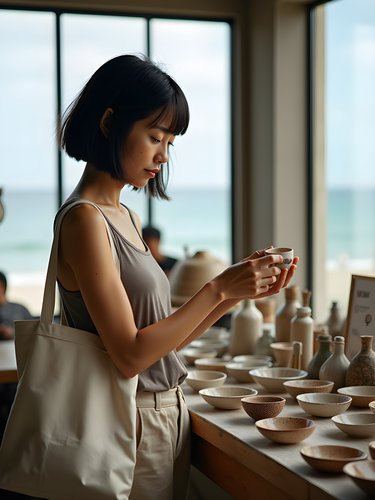
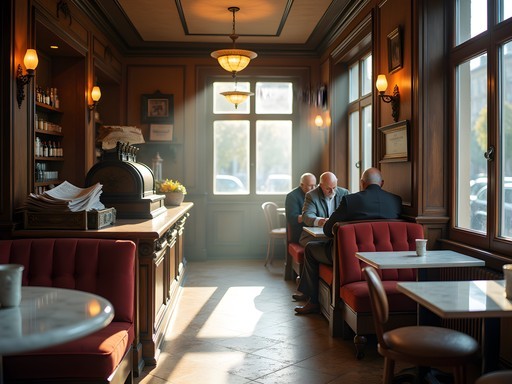







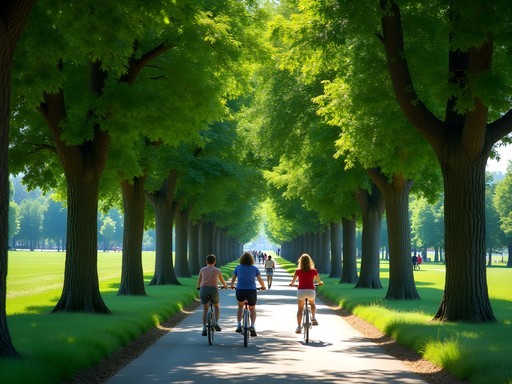
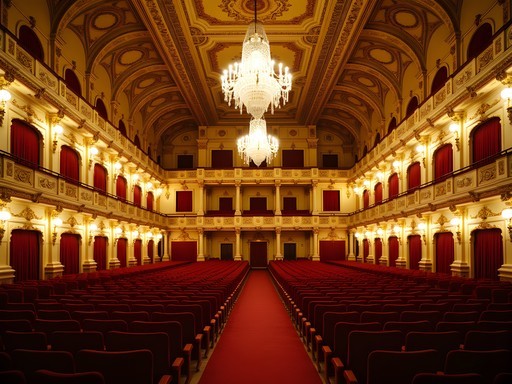
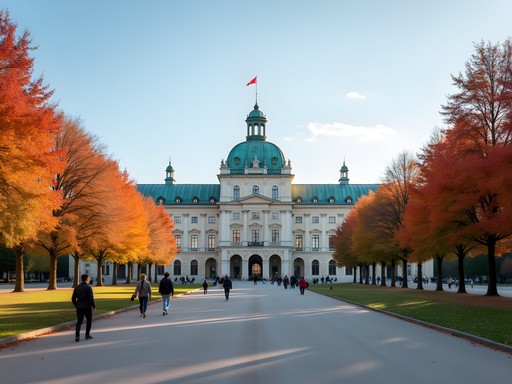
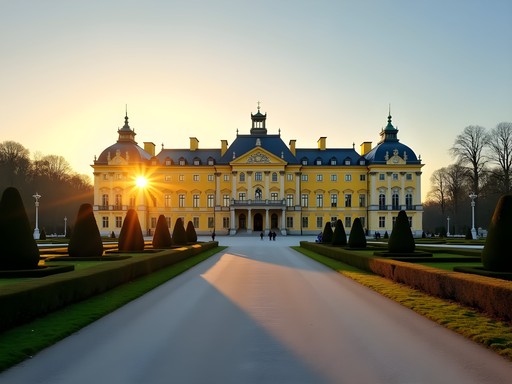

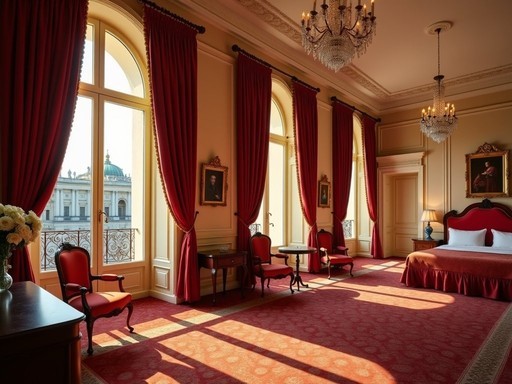

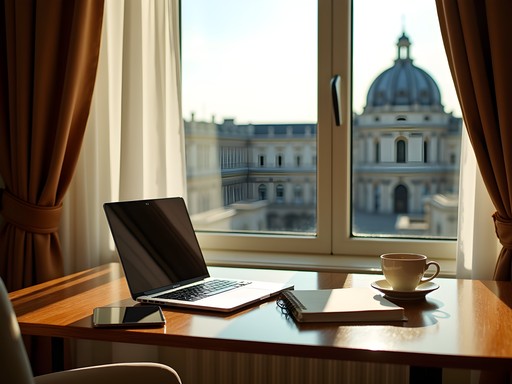
Comments
escapenomad
Those photos of Café Phil made me instantly book flights to Vienna for December! Can't wait!
mountainblogger
December is magical there! Make sure to check out the Christmas markets too - the one at Spittelberg is less touristy and near Café Phil.
escapenomad
Thanks for the tip! Adding Spittelberg to my list right now.
Sophia Gomez
Audrey, your post brought back so many memories! I spent three weeks in Vienna last winter for a business trip and discovered Vollpension by complete accident when I was caught in a snowstorm. Walking into that café was like being transported into my grandmother's living room! The Omas there adopted me for the afternoon and insisted I try every cake they had baked that day. I ended up buying my Vienna travel guide after that experience because I realized how much of the city I was missing by sticking to the business district. Your description of the *uchi-soto* concept perfectly captures what makes these places special - they let visitors briefly step inside the inner circle of Viennese life.
islandbackpacker
Going to Vienna next month! How easy is it to get to Karmelitermarkt using public transportation? I'm staying near Stephansplatz and wondering if I should just walk or take the metro. Also, is it worth visiting on weekdays or only on weekends?
Sophia Gomez
From Stephansplatz, take the U1 to Nestroyplatz and it's a short walk from there. Super easy! The market is best on Saturday mornings when all vendors are there, but weekdays still have a nice local vibe with fewer crowds. I recommend grabbing one of those little pocket transit maps at your hotel - they're lifesavers!
islandbackpacker
Thank you! That's super helpful. Will definitely check it out on a Saturday then!
mountainblogger
Café Jelinek was my absolute highlight when I visited Vienna last summer! The locals truly outnumbered tourists 10:1, and that apple strudel... heavenly! I actually spent three afternoons working from there and felt like I became part of the furniture. The staff even started remembering my order by the third day. Audrey, you really captured the essence of these hidden gems without over-exposing them. That's a fine line to walk in travel writing these days!
Sophia Gomez
That's exactly what I love about Vienna - those places where you can become a 'regular' even as a visitor! Did you try their Kaiserschmarrn too? It's my weakness every time I'm there.
mountainblogger
Yes! The Kaiserschmarrn was incredible. I'm still dreaming about it! The elderly gentleman who seemed to be there every day told me they make it the traditional way - no shortcuts.
escapediver
Great post! Anyone know if Vollpension is open on Sundays? Planning a weekend trip and would love to try those grandma-baked cakes!
Kimberly Murphy
Yes! I was there on a Sunday morning last year. It gets busy around 11am though, so go early. Their chocolate cake is incredible - made from a recipe that's been in one of the grandma's families for generations. I used my Vienna city guide to find my way there from the Naschmarkt area - about a 15 minute walk.
escapediver
Perfect, thanks! Will definitely check it out early then.
Kimberly Murphy
Audrey, this is EXACTLY the kind of insider guide I've been searching for! I visited Vienna last autumn but stuck mostly to the touristy spots. Karmelitermarkt sounds like my kind of place - I love those bohemian neighborhood markets where you can actually chat with locals. The vintage book section at Café Phil also sounds incredible for a bookworm like me! I'm planning another trip in September and will definitely be exploring these hidden gems. Did you find the locals were open to chatting with visitors at these more neighborhood-focused spots? I always worry about intruding on local hangouts.
escapediver
Karmelitermarkt is the real deal! Went there last week and bought some amazing cheese from a vendor who's been there for decades. Much better than the touristy markets.
cityblogger
Café Jelinek looks amazing! Definitely adding it to my list for when I visit Vienna next month.
Kimberly Murphy
You absolutely must go! I spent a whole afternoon there last year and the apple strudel is to die for. The locals were so welcoming too!
cityblogger
Thanks for the tip! Did you try any of the other cafés mentioned here?
coffeelover44
Just visited Café Phil based on your recommendation and it was perfect! Great vibe and amazing coffee.
Audrey Yamamoto
So glad you enjoyed it! Did you try any of their pastries?
coffeelover44
Yes! Had the apricot tart and it was incredible. Will definitely go back before I leave Vienna.
viennavisitor92
What's the best way to get to Karmelitermarkt? Is it walkable from the city center?
Savannah Wood
It's about a 20-minute walk from Stephansplatz, but I'd recommend taking the U2 subway line to Taborstraße station. It's just a 5-minute walk from there. Vienna's public transport is super efficient!
viennavisitor92
Thanks! Will definitely use the U2 then. Appreciate the tip!
happyblogger
Just got back from Vienna and tried Café Jelinek based on your recommendation! It really does feel like someone's living room. The older gentleman who served us barely spoke English but somehow made us feel so welcome. We ended up chatting with a local couple at the next table who've been going there for 30 years! This is why I love your blog - these aren't places you find in guidebooks.
hikingdiver
Was the apple strudel as good as they say?
happyblogger
Even better! Crispy on the outside, perfectly spiced apples inside. Not too sweet either.
Venture X
Premium card with 2X miles, $300 travel credit, Priority Pass